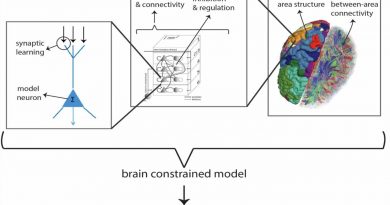Women’s lifestyle changes, even in middle age, may reduce future stroke risk

Middle age may not be too late for women to substantially reduce their stroke risk by not smoking, exercising, maintaining a healthy weight and making healthy food choices, according to new research published today in Stroke, a journal of the American Stroke Association, a division of the American Heart Association.
In general, women are more likely than men to have a stroke, die from stroke and have poorer health and physical function after a stroke. The average age of first stroke in women is 75 years. Based on this information, researchers theorized that making mid-life lifestyle changes might help reduce stroke’s burden among women.
“We found that changing to a healthy lifestyle, even in your 50s, still has the potential to prevent strokes,” said Goodarz Danaei, Sc.D., lead study author and Bernard Lown Associate Professor of Cardiovascular Health at Harvard T.H. Chan School of Public Health in Boston. “Women who made lifestyle modifications in middle age reduced their long-term risk of total stroke by nearly a quarter and ischemic stroke, the most common type of stroke, by more than one-third.”
Researchers analyzed the Nurses’ Health Study, which includes health information on nearly 60,000 women who enrolled at average age of 52 and continued in the study for an average of 26 years. Researchers studied the impact on stroke risk from smoking cessation, exercising 30 minutes or more daily and gradual weight loss if women were overweight. The researchers also studied the impact of making recommended dietary modifications that emphasize eating more fish, nuts, whole grains, fruits and vegetables and less red meat, no processed meat and less alcohol.
During the 26-year follow-up, researchers found:
- 4.7% of women with no lifestyle interventions had a stroke of any type; 2.4% had ischemic stroke; and 0.7% had hemorrhagic stroke.
- Engaging in the three non-dietary interventions—smoking cessation, daily exercise and weight loss—was estimated to reduce the risk of total stroke by 25% and ischemic stroke by 36%.
- Sustained dietary modifications were estimated to reduce the risk of total stroke by 23%.
Researchers also found that increasing fish and nut consumption and reducing unprocessed red meat consumption appeared to have positive impacts on reducing stroke risk, although the degree of impact from these dietary changes was not as big as those achieved through increased physical activity, smoking cessation and maintaining a healthy weight.
Source: Read Full Article



